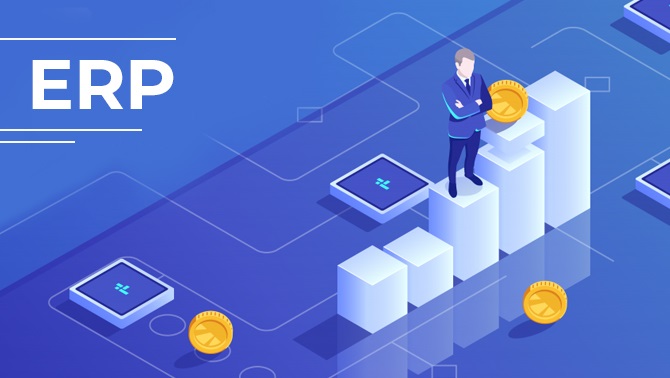Smaller businesses have a common approach towards ERP that it is primarily meant for larger businesses. They carry a perception of ERP software being very costly and the implementation process being out of control. But, Yes! The truth is something else, which is explained further in this blog.
Recent technology i.e. modern ERP solutions has made the entire implementation process much easier and faster. Also, the option of monthly subscription has lowered the burden on their (stakeholder’s) pockets. Hence, in today’s date, SMEs can too enjoy the fruitful service of Enterprise resource planning solutions in less expense with a short implementation cycle.
So, today we are going to study about the ‘scope’ of an ERP solution in small and medium sized businesses. As a result, lets go through a quick guide on ERP software:
What is ERP?
ERP (Enterprise Resource Planning) software is a tool used to bring resources of a business closer. At earlier times, people used to plan and perform any task relying on human based processes and manual calculations and estimations. With continuous improvements in technology and automation, enterprises today are capable of performing their operations so easily.
At its finest, ERP brings business closer to Information. Based on resources and previous information, it helps you plan further operations. This, then ensures better decisions are taken.
It helps a business perform many of their operational activities like creating database, fulfilling orders, planning sales, forecasting, improving sales along with CRM, invoicing, curbing wastage, and much more.
What are some major challenges small businesses face (lacking an ERP)?
- Lack of an upper management
- Feeble flow of information
- Lack of transparency
- Wastage of resources
- and Much more…
For small and medium enterprises, the owners may try to act as the hub point (or upper management). Perhaps, this isn’t effective enough. Lack of ERP makes you fly blind. There are an ocean of data which, sometimes gets un-noticed by employees.
Truly speaking – there are never ending disadvantages of lacking an ERP software at business.
Listed below are some major areas ERP can create an impact in one’s business-
- Custom reporting
An intuitive ERP software lets you create reports on the go. It gives power to anytime customize parameters of the report. There is a huge need of businesses relying on these reports to function. It shows you accurate status of departmental successes, failures and improvements in number. An ERP solution ensures easy data flow between departments through easy and mobile reporting.
- Production line
ERP provides the much needed scalability to businesses. A production line (department) consists of many crucial steps like planning, data feeding, material tracking, waste management, etc. which in total brings in a gamut of data which further needs a skilled tool to manage better. Loss of any data here or losing track of production, can damage the whole procedure. ERP software here keeps entire cycle under your eye.
- Accounts and Finance
Crucial financial assets, costing, billing, transactions, expense management and cash handling are some of the major challenges of an account’s department. Also, they would prove to be the biggest hurdle in financial department. Whereas, an ERP solution takes care of all your accounts’ parameters. Automated tax handling, cash management and accurate invoice preparation are some best benefits.
- Inventory management
Without knowing what resources you have, how can you call to perform? Suppose you have been appointed as the marketing manager of your entity, without knowing whether you have a designer or not, whether you have right tools for SEO or not, how will you start? Similarly, ERP software keeps a good track of your inventory and resources and ensures that right steps are taken.
ERP is widely used for SCM (Supply chain management) purpose as well.
- HR and Sales’ department
On integration of ERP software with your HR department, you can have better view upon your company resources like employees, employee assets, training management, meeting room bookings, and much more. Similarly, CRM (Customer relationship management) along with ERP can improve our sales’ department and boost profits.
This, therefore, brings more power to your HR’s hands and sales people. Both of them, in fact, each and every department upon integration of a right ERP software gets the liberty to out-perform and make the business grow higher.
Author bio-

Ritik Singh writes about ERP and CRM solutions (on-premise and cloud-based). A young passionate content creator who writes for Sage Software Solutions pvt. Ltd., a leading provider of cloud-based ERP and CRM software in India.








